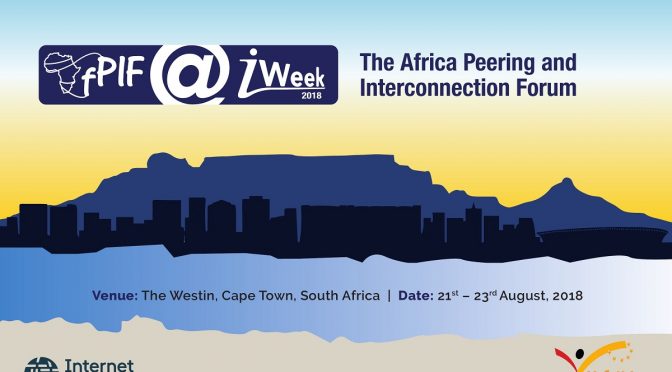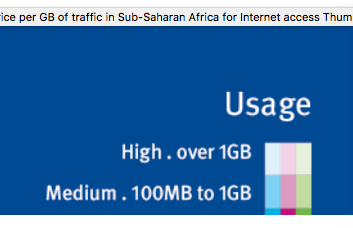A comprehensive view of Africa’s Internet peering and interconnection ecosystem from the region’s top networks and experts, opportunities to strengthen and build new peering relationships with over 300 attendees using an open to all “bilateral meeting” scheduling tool, insightful presentations, studies and reports delivered by a strong lineup of speakers, and a technical village are some of the interesting activities that participants to iWeek/AfPIF 2018 can expect.
The sessions have been spiced up to include a technical village, with vendors offering masterclasses, a super teachers award honoring Africa’s tech teachers, and a beers for peers session, to allow participants to network more.
“This year’s agenda reflects the growing interests from our rapidly evolving regional industry with an increased focus on regional networks, carrier-neutral data centers, cloud services, and regulation in addition to our traditional line-up of quality technical content,” said Kyle Spencer, Co-Coordinator of the African IXP Association.
This year, the Africa Peering and Interconnection Forum (AfPIF) joined hands with the South Africa ISP Association to hold sessions during iWeek. This provides extensive training sessions and opportunities for participants.
“Participants will have opportunities to meet with industry leaders to discuss one on one or in groups the various issues around both networking and content in Africa. Bilaterals are always great to discuss one on one about peering,” said Malcom Siegel, Chairperson, ISP Association in South Africa.
In the last eight years, AfPIF has established itself as the place to be for techies, regulators, and businesses engaging in the rapidly-developing Internet ecosystem. For new entrants into Africa, AfPIF has been a good place to meet major players and engage in bilateral negotiations, which have resulted in increased interconnectivity within the region.
“We have a particularly strong line-up of speakers this year including representatives from Africa and beyond, including Liquid Telecom, Teraco, Amazon, Facebook, Cloudflare, Netflix, TeleGeography, Hurricane Electric, Internet Solutions, and Asteroid, among others,” added Spencer, who is also the Executive Director of the Uganda Internet Exchange Point.
Teaching has been a major component and this year it will not be any different; participants can expect to gain more knowledge and take advantage of the wealth of experience among other participants.
“We have a technical village with vendors who will be giving masterclasses; we also have a training program designed with Africa in mind and will give delegates short 45-50 minute sessions on topics relevant to peering and content delivery,” said Siegel.
Regional interconnection is still a major issue; the continent is striving to interconnect more, and Spencer sees an opportunity to discuss the explosive growth seen in South Africa and how it is impacting growth in the rest of the continent.
After the conference, the organizers encourage participants to experience life in Cape Town and South Africa, if possible.
“Cape Town, South Africa is easily one of the world’s most beautiful, entertaining, and affordable tourist destinations; it has a stunning mountainous coastline; an unusually high density of excellent bars and restaurants; and is immediately adjacent to one of the world’s finest wine-growing regions. Our AfPIF social events and gala dinner will reflect this, of course, but I strongly encourage everyone to stay the following weekend in order to experience all that the area has to offer,” concluded Spencer.
Have a great week ahead!!

